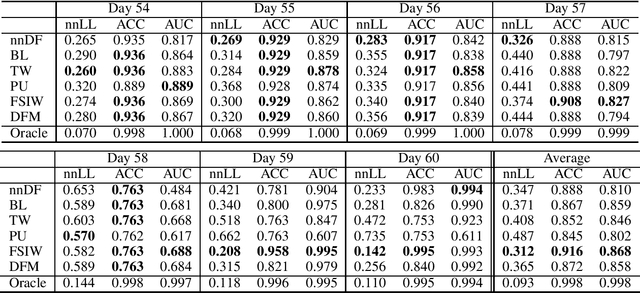Learning Classifiers under Delayed Feedback with a Time Window Assumption
Paper and Code
Sep 28, 2020


We consider training a binary classifier under delayed feedback (DF Learning). In DF Learning, we first receive negative samples; subsequently, some samples turn positive. This problem is conceivable in various real-world applications such as online advertisements, where the user action takes place long after the first click. Owing to the delayed feedback, simply separating the positive and negative data causes a sample selection bias. One solution is to assume that a long time window after first observing a sample reduces the sample selection bias. However, existing studies report that only using a portion of all samples based on the time window assumption yields suboptimal performance, and the use of all samples along with the time window assumption improves empirical performance. Extending these existing studies, we propose a method with an unbiased and convex empirical risk constructed from the whole samples under the time window assumption. We provide experimental results to demonstrate the effectiveness of the proposed method using a real traffic log dataset.
 Add to Chrome
Add to Chrome Add to Firefox
Add to Firefox Add to Edge
Add to Edge